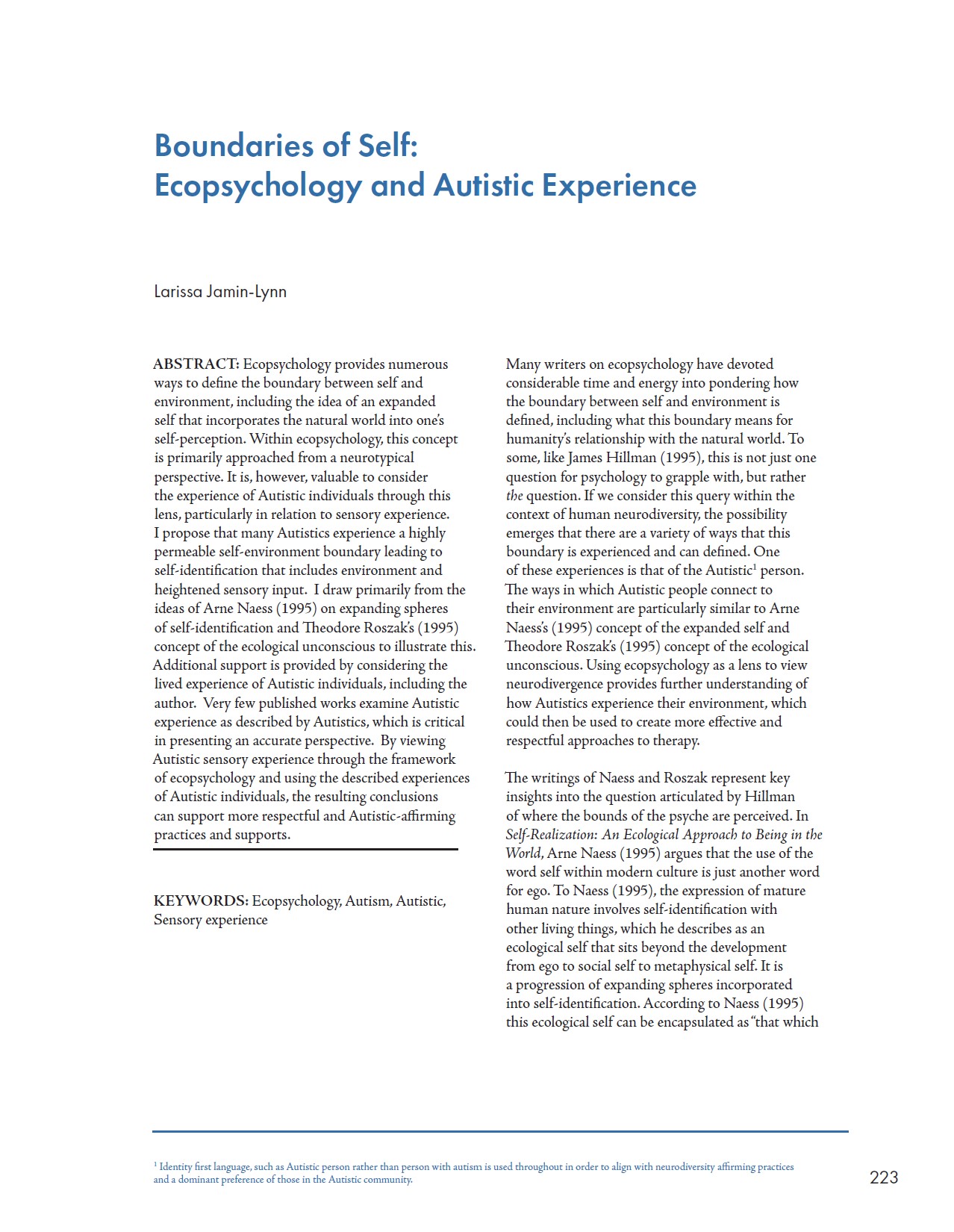Boundaries of Self
Ecopsychology and Autistic Experience
DOI:
https://doi.org/10.29173/crossings205Keywords:
ecopsychology, autism, autistic, sensory experienceAbstract
Ecopsychology provides numerous ways to define the boundary between self and environment, including the idea of an expanded self that incorporate the natural world into one’s self-perception. Within ecopsychology this concept is primarily approached from a neurotypical perspective. It is, however, valuable to consider the experience of Autistic individuals through this lens, particularly in relation to sensory experience. I propose that many Autistics experience a highly permeable self-environment boundary leading to self-identification that includes environment and heightened sensory input. I draw primarily from the ideas of Arne Naess (1995) on expanding spheres of self-identification and Theodore Roszak’s (1995) concept of the ecological unconscious to illustrate this. Additional support is provided by considering the lived experience of Autistic individuals, including the author. Very few published works examine Autistic experience as described by Autistics, which is critical in presenting an accurate perspective. By viewing Autistic sensory experience through the framework of ecopsychology and using the described experiences of Autistic individuals, the resulting conclusions can support more respectful and Autistic-affirming practices and supports.

Downloads
Published
Issue
Section
License
Copyright (c) 2024 Larissa Jamin-Lynn

This work is licensed under a Creative Commons Attribution 4.0 International License.

